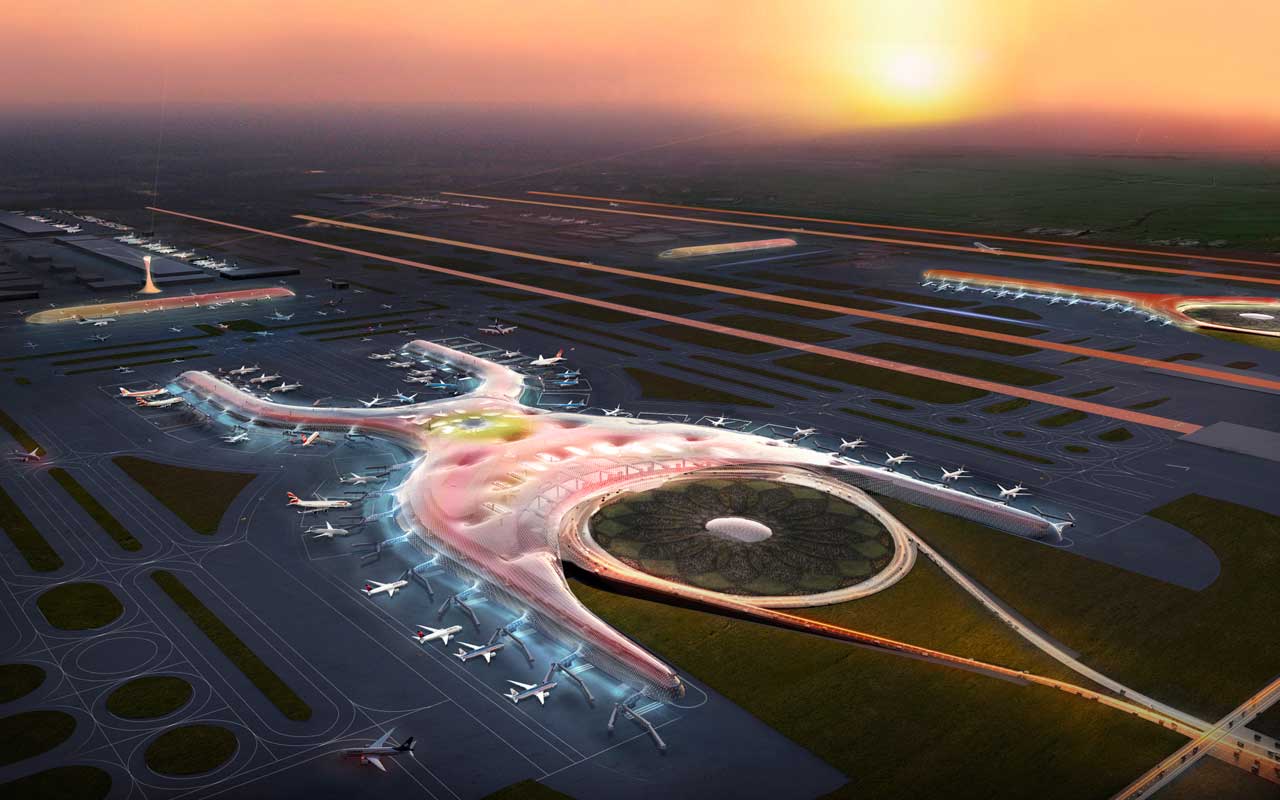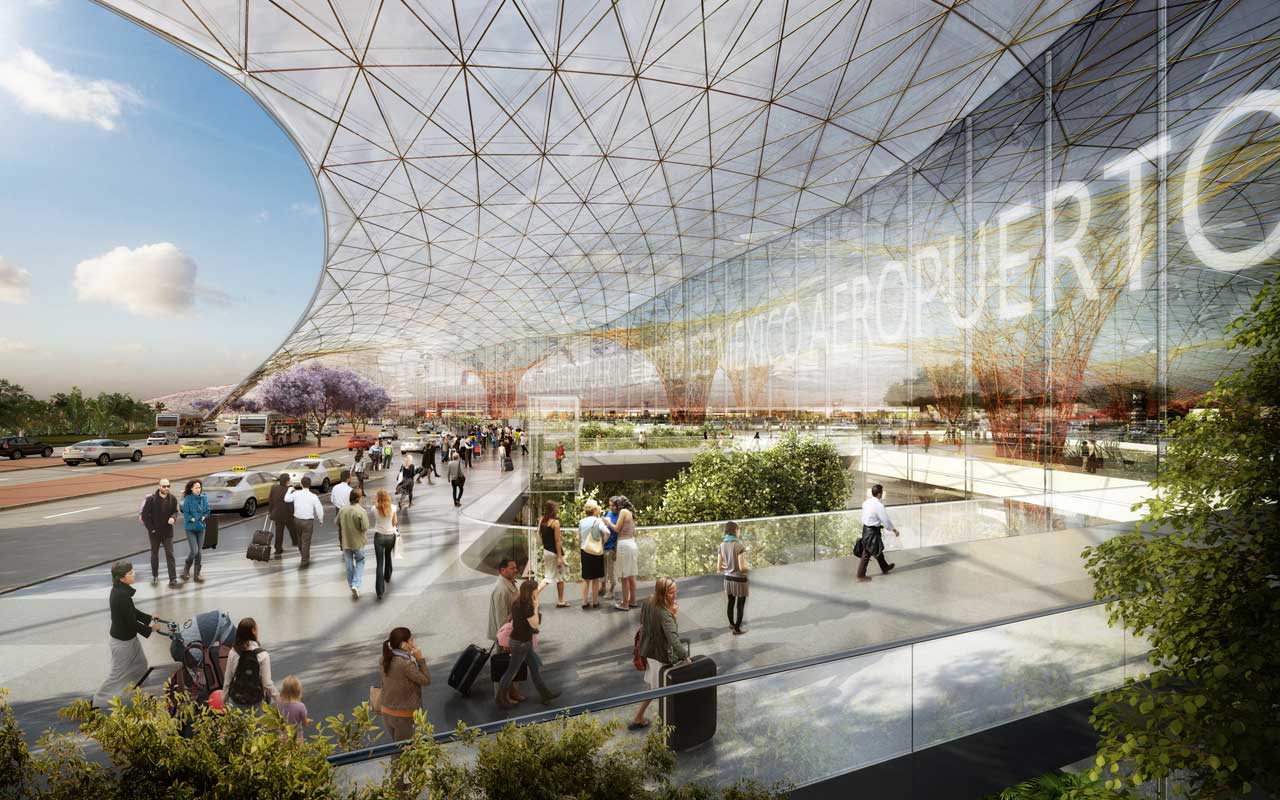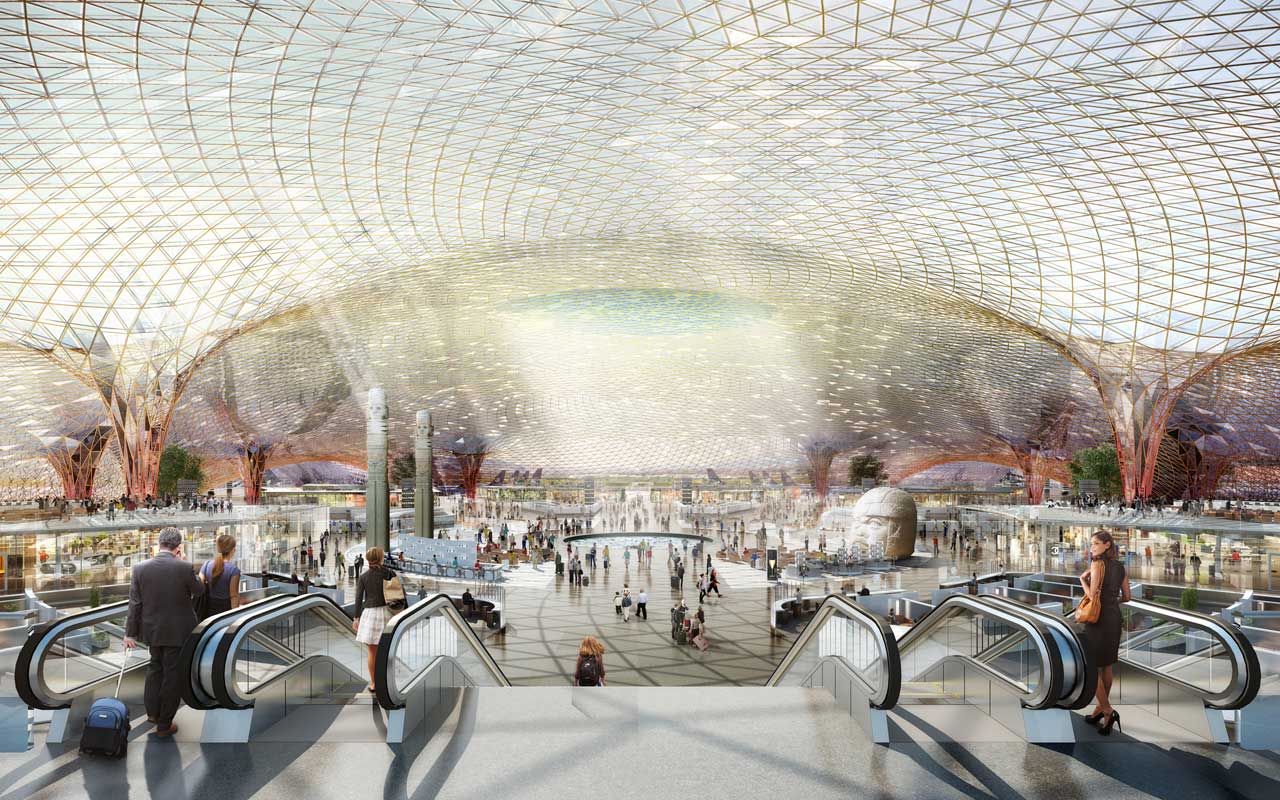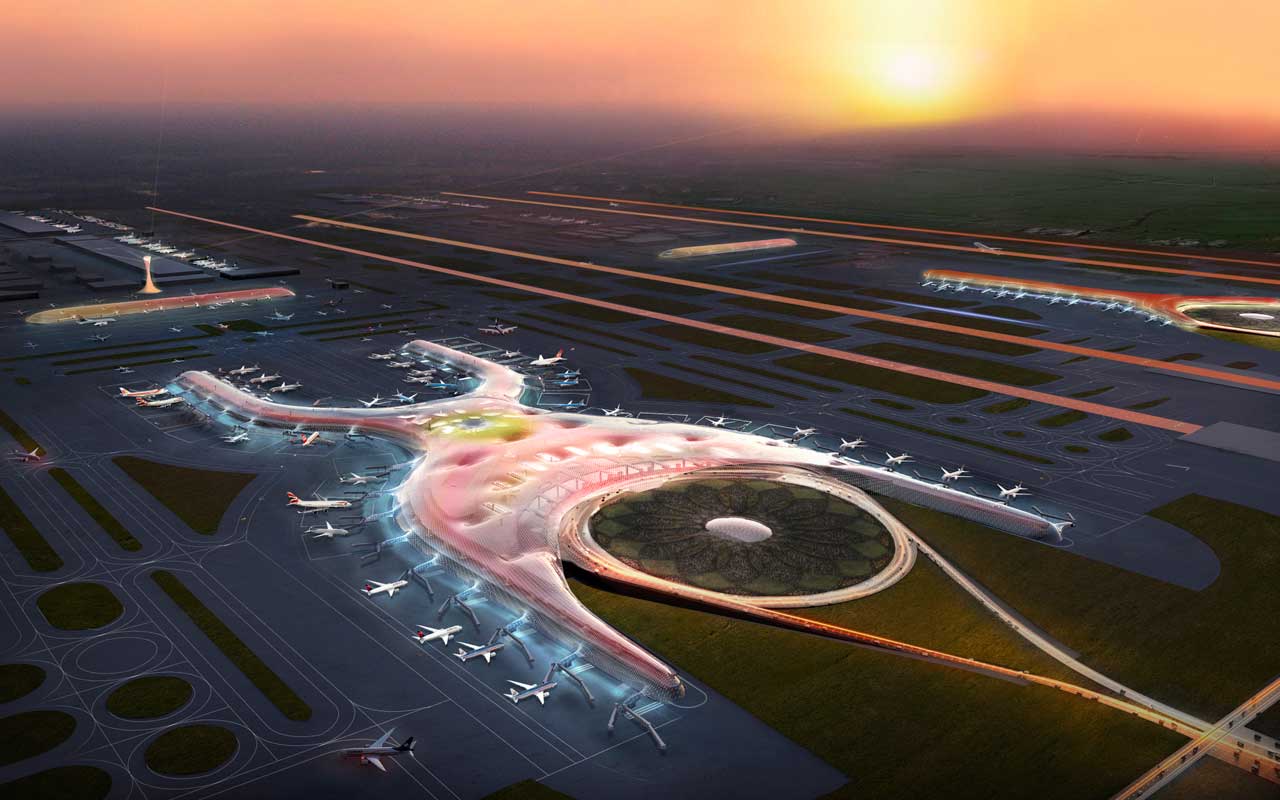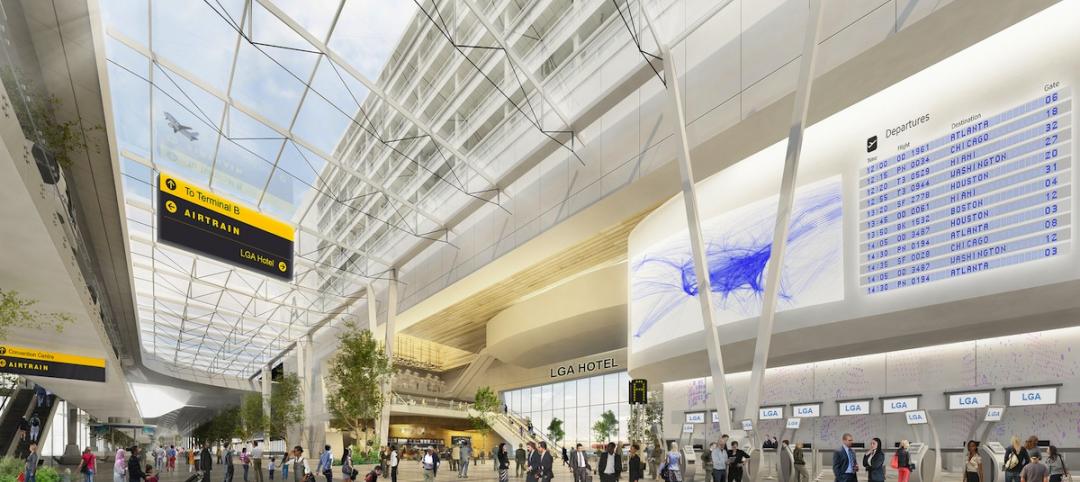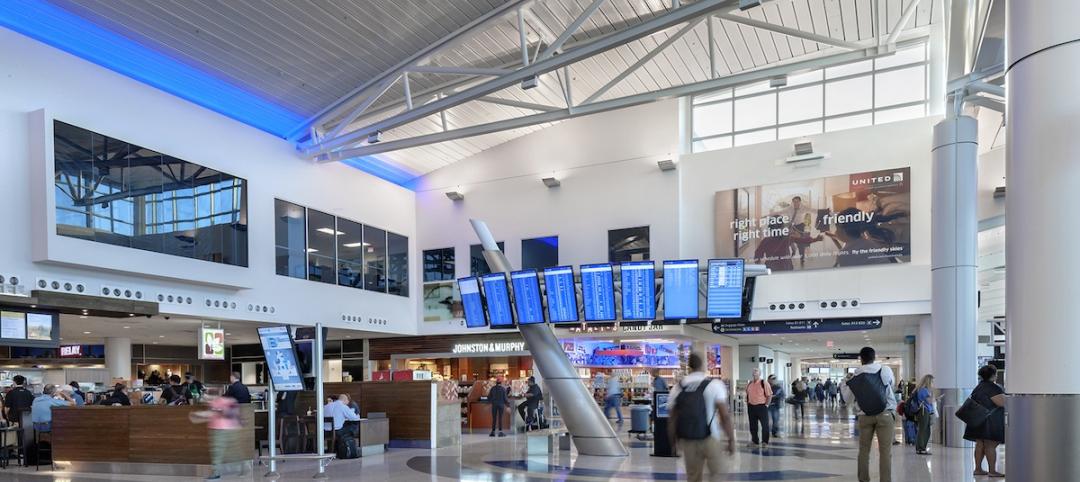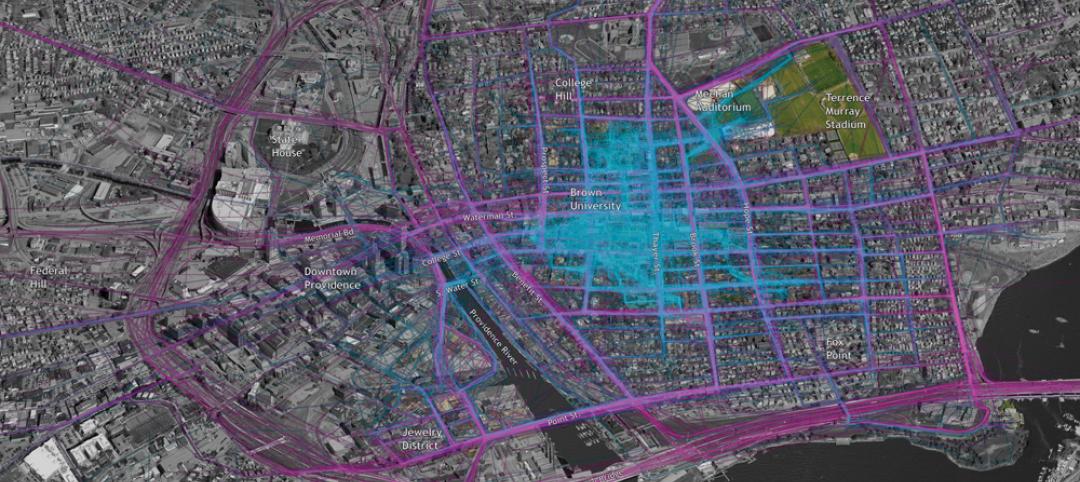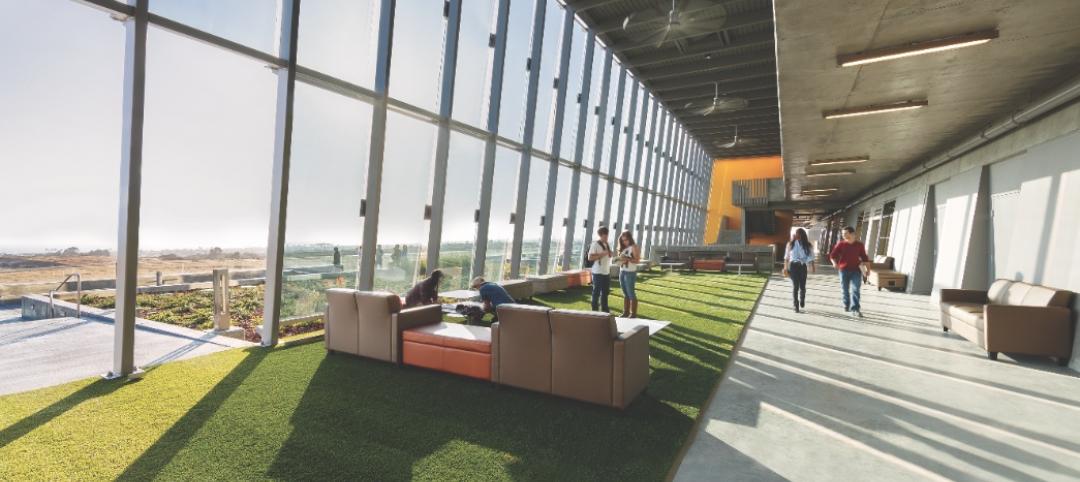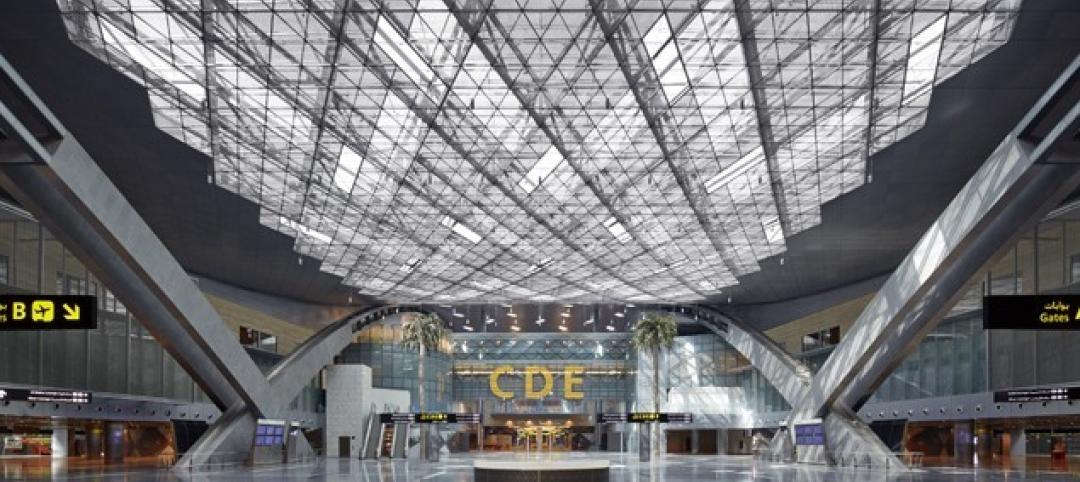Imagine an airport that will not require use of internal trains or underground tunnels to go from terminal-to-terminal. Last week, Foster + Partners announced in a press release that its design for such an airport won the international design competition for Mexico City's new airport.
The design was a team effort, consisting of work from Foster + Partners, FR-EE (Fernando Romero Enterprise), and NACO (Netherlands Airport Consultants).
Here is what Foster + Partners had to say about the design:
At 555,000 square metres, it will be one of the world’s largest airports. Conceived with Foster + Partners engineering team, the project revolutionises airport design – the entire terminal is enclosed within a continuous lightweight gridshell, embracing walls and roof in a single, flowing form, evocative of flight.
Designed to be the world’s most sustainable airport, the compact single terminal uses less materials and energy than a cluster of buildings. The design ensures short walking distances and few level changes, it is easy to navigate, and passengers will not have to use internal trains or underground tunnels – it is a celebration of space and light.
Flexible in operation, its design anticipates the predicted increase in passenger numbers to 2028 and beyond, and its development will be the catalyst for the regeneration of the surrounding area. The airport is planned on a new site with three runways, and an expansion plan up to 2062 with an eventual six runways.
With spans in excess of 100 metres, three times the span of a conventional airport, it has a monumental scale inspired by Mexican architecture and symbolism. The maximum span internally is 170 metres. The lightweight glass and steel structure and soaring vaulted roof are designed for Mexico City’s challenging soil conditions. Its unique pre-fabricated system can be constructed rapidly, without the need for scaffolding – the airport will be a showcase for Mexican innovation, built by Mexican contractors and engineers.
The entire building is serviced from beneath, freeing the roof of ducts and pipes and revealing the environmental skin. This hardworking structure harnesses the power of the sun, collects rainwater, provides shading, directs daylight and enables views – all while achieving a high performance envelope that meets high thermal and acoustic standards.
The LEED Platinum design works with Mexico City’s temperate, dry climate to fill the terminal spaces with fresh air using displacement ventilation principles. For a large part of the year, comfortable temperatures will be maintained by almost 100% outside air, with little or no additional heating or cooling required.
Foster + Partners' Mexico City Airport from The Architects' Journal on Vimeo.
Related Stories
Airports | Jul 28, 2015
Plans to make over New York’s aging LaGuardia Airport are revealed
The complete redesign, devised by a panel of experts, would unify terminals, relieve ground traffic congestion, and install state-of-the-art amenities.
Airports | Jul 22, 2015
MUST SEE: JFK airport taps Gensler to design terminal for animals
Pets can enjoy luxurious spa and grooming services before being transported directly to their flight from the terminal.
Airports | Jul 1, 2015
FIRST LOOK: JetBlue opens sprawling green rooftop at JFK International Airport
The 4,046-sf rooftop includes landscaped green spaces, seating for 50 people, 400-sf children’s play area, and a 400-sf dog-walk area.
Sponsored | Airports | Jun 5, 2015
Exposed glulam framework offers quiet complement to Jackson Hole airport’s mountain backdrop
A three-phase expansion and renovation, which began in 2009, nearly doubled the size of the aviation hub; the only one located in a national park
Airports | Apr 21, 2015
Trends driving airport construction
Upgrades to aviation infrastructure have not kept pace with the increase in airport traffic or even at a level sufficient to accommodate the life cycle of our many dated terminal facilities. Until now.
Airports | Feb 6, 2015
Zaha Hadid-designed terminal in Beijing will be world’s largest
The terminal will accommodate 45 million passengers per year, and will be a hub for both air and rail travel.
| Jan 2, 2015
Construction put in place enjoyed healthy gains in 2014
Construction consultant FMI foresees—with some caveats—continuing growth in the office, lodging, and manufacturing sectors. But funding uncertainties raise red flags in education and healthcare.
BIM and Information Technology | Dec 28, 2014
The Big Data revolution: How data-driven design is transforming project planning
There are literally hundreds of applications for deep analytics in planning and design projects, not to mention the many benefits for construction teams, building owners, and facility managers. We profile some early successful applications.
| Dec 28, 2014
AIA course: Enhancing interior comfort while improving overall building efficacy
Providing more comfortable conditions to building occupants has become a top priority in today’s interior designs. This course is worth 1.0 AIA LU/HSW.
| Dec 28, 2014
The future of airport terminal design: destination status, five-star amenities, stress-free travel
Taking a cue from the hospitality industry, airport executives are seeking to make their facilities feel more like destinations, writes HOK's Richard Gammon.


